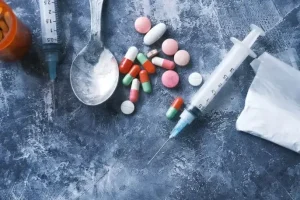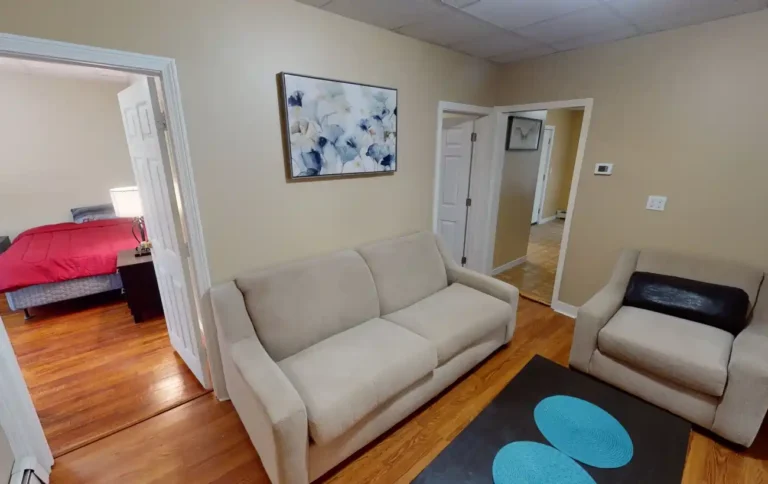
Alcohol withdrawal symptoms can shift quickly and violently – you can experience minor symptoms to extremely severe side effects in a matter of hours. There are many alcohol treatment Halfway house programs that focus on helping individuals overcome drinking problems, no matter how minor or how serious. Specialized rehab facilities offer many benefits to those struggling with alcohol addiction. For example, treatment providers will be able to help alleviate some of the most painful of withdrawal symptoms, as well as provide 24/7 support through the entire recovery process.
Appointments & Care
- Benzodiazepines carry a Food and Drug Administration boxed warning because there is a risk of dependence.
- Make sure that others with you during this time know to call 911 right away.
- To learn more about when you may need help for alcohol misuse, visit our informational page on helping someone with an alcohol use disorder or take our alcohol misuse self-assessment.
- If you have mild-to-moderate alcohol withdrawal symptoms, you can often be treated in an outpatient setting.
- Your use of this information means that you agree to the Terms of Use and Privacy Policy.
Withdrawal seizures usually happen 12 to 48 hours after your last drink. Get help right away if you or a loved one has an alcohol-related seizure. After you stop drinking heavy, regular amounts of alcohol, your nervous system needs time to adjust. That can cause uncomfortable physical and mental symptoms, which can sometimes be life-threatening. Get support from your doctor, friends, and family when you’re ready to stop drinking. That way, they can help you manage the discomfort and respond quickly in case of a medical emergency.
Depression Raises the Risk of Alcohol Use Disorder and Vice Versa
Many people find that their anxiety and depression start to ease, and motivation to engage with life returns. One month without alcohol is a major milestone, and the benefits are starting to show. Your risk of liver damage and high blood pressure is lower, and your sleep and energy levels are stabilising. You are thinking more clearly and proving to yourself that life without alcohol is not only possible but also better.
Alcohol and Depression: How They’re Linked
The good news is that alcohol withdrawal seizures are preventable with the right treatment and care. These disturbances can leave the body and mind feeling exhausted, which can worsen other symptoms and increase the risk of seizures. If sleep problems persist or worsen, it’s a sign that medical intervention may be needed.
Role of Medical Supervision in Detox
It’s important to access mental health professionals who specialize in addiction treatment and can offer their expertise. Alcohol withdrawal can come with life-threatening symptoms, such as seizures and cardiac complications. For this reason, it’s highly recommended that you opt for detoxification in a rehabilitation center. This will ensure you’re supervised at all times, and someone can assist if you have a medical emergency. Medical professionals can help manage withdrawal symptoms and reduce the risk of complications, ensuring a safer detox process.
- The first 48 hours can bring intense cravings, and for those at risk of severe withdrawal, confusion and tremors may appear.
- You may reach a point where you start drinking again just to relieve your symptoms.
- Harper volunteered for a five-year term on her medical school’s admission committee, has given numerous presentations, and has taught medical students and residents.
- It’s meant to explain why getting medical help for withdrawal isn’t just about comfort – it’s about safety.
- Get help right away if you or a loved one has an alcohol-related seizure.
Severe confusion, hallucinations, or seizures are emergency symptoms that require immediate medical attention. Tremors, or “the shakes,” are one of the first signs of alcohol withdrawal. When alcohol use is stopped suddenly, the body, which has developed a dependency on alcohol to maintain normal functioning, experiences a state of shock. These seizures are caused by specific changes in your body and brain as you adjust to life without alcohol. The body’s reaction to alcohol during this withdrawal timeline is a result of the brain’s attempt to rebalance itself. These seizures are typically generalized tonic-clonic seizures, meaning they involve sudden, uncontrollable muscle contractions and loss of consciousness.
What is alcohol withdrawal syndrome?
Before starting rehabilitation, the first step alcohol withdrawal is going through detox. Knowing what the detox process looks like can help patients set expectations on what’s to come. Prolonged alcohol use causes more significant changes in the brain’s chemistry, making it harder for the body to adjust when alcohol is removed. Individuals with years of heavy drinking are particularly vulnerable and should never attempt to quit without medical supervision. Most people who go through alcohol withdrawal make a full recovery. But, death is possible, especially if delirium tremens occurs.
Alcohol Withdrawal Treatment

Seizures may happen within the first 48 hours after you stop. Millions of people join support groups to help stop drinking and stay stopped. Studies show support groups play an instrumental role in helping people develop healthy social networks that result in continued sobriety. Tap into your social network to help support you through alcohol withdrawal. Find a supportive friend or family member to be with you while you withdraw and support your new non-drinking lifestyle. Moderate https://ecosoberhouse.com/ or binge drinkers can likely quit alcohol on their own.
Anticonvulsant Medications
- People who continue to drink a lot may develop health problems such as liver, heart, and nervous system disease.
- Everyone is different, but generally speaking, mild symptoms often start 6-12 hours after your last drink.
- Cognitive behavioral therapy for insomnia (CBTi), medication, or a referral to a behavioral sleep specialist can help.
- Tell your doctor if you see, hear, or feel things that aren’t there.
- To help relieve uncomfortable withdrawal symptoms, many treatment programs offer medication-assisted therapy.
Do not hesitate to seek medical attention during any phase of alcohol withdrawal. A medical evaluation can determine if your symptoms need to be monitored. There are many barriers to seeking help, including shame, financial limitations, or lack of support. But treatment is the best course of action for anyone struggling with alcohol. If left untreated, addiction can lead to serious physical and mental health effects, including death. In addition to the physical withdrawal symptoms you’ll experience with detox, there are also emotional and mental symptoms.

Alcohol Withdrawal Syndrome

The symptoms can increase in severity if you experience multiple periods of withdrawal.There are many risks of long-term or heavy alcohol use. It is important to contact your doctor if you feel you may be experiencing alcohol use disorder or dependent drinking. They will be able to offer advice on how to reduce your intake safely while helping you manage any symptoms of withdrawal. How you manage alcohol withdrawal depends on your history. If you are a long-time, heavy drinker, have had a seizure during a previous alcohol withdrawal, or been told you had DTs on a past withdrawal, you will need close monitoring. You may be able to stay home while you go through withdrawal.


.jpg)
